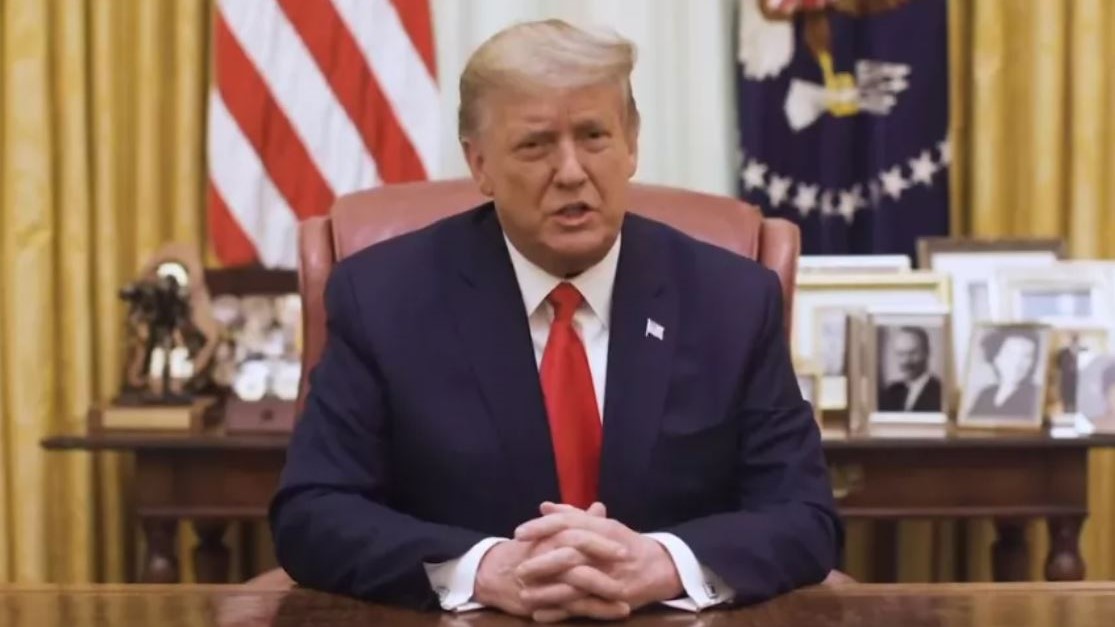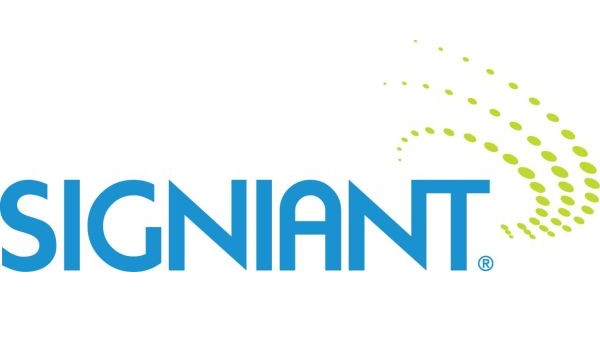Trump: Lifting 39% Station Ownership Cap Could Help ‘Radical Left,’ ‘Fake News Networks’
‘NO EXPANSION OF THE FAKE NEWS NETWORKS. If anything, make them SMALLER!’ Trump posted on Truth Social

The professional video industry's #1 source for news, trends and product and tech information. Sign up below.
You are now subscribed
Your newsletter sign-up was successful
In a social media post on Nov. 23, President Donald Trump linked to a Newsmax article that said lifting FCC station ownership caps would be a “disaster for conservatives.” Trump also complained that if proposals to lift the cap “would allow the Radical Left Networks to ‘enlarge,’ I would not be happy…If anything make them SMALLER!”
The attachment of the Newsmax story indicated that the post clearly backed positions taken by Newsmax CEO Chris Ruddy in articles and filings with the Federal Communications Commission that oppose lifting the ownership caps. One America News, another staunchly pro-Trump cable network, has also come out against ownership deregulation.
It’s unclear, though, if Trump’s post will have any impact on the FCC’s ongoing reexamination of ownership caps. Regulations currently limit the audience reach of a single TV station group to no more than 39% of total U.S. television viewership.
FCC Chair Brendan Carr has repeatedly signaled his willingness to lift at least some of the ownership caps as a way to strengthen local broadcasters. He phrases his support as a means of limiting the power of national networks, which he says are biased, and strengthening local affiliates.
As part of that effort, the FCC recently launched a widespread probe into broadcast network-affiliate relations.
But Carr has gone out of his way to support and praise Trump in ways not seen for many decades at the supposedly independent regulatory agency. He has also been criticized by former FCC chairs and commissioners for investigating network affiliates who have provided critical coverage of President Trump or shows, such as “Jimmy Kimmel Live!,” that Trump wants to see taken off the air.
The impact of the post is also difficult to interpret because Trump has repeatedly issued statements that either confuse the authority of the FCC or simplify regulatory issues in ways that are misleading.
The professional video industry's #1 source for news, trends and product and tech information. Sign up below.
Trump, for example, has repeatedly called on the FCC to yank the licenses for broadcast networks even though the FCC does not license broadcast networks like ABC, CBS, NBC or Fox.
The FCC does have licensing authority over all broadcast stations, including network affiliates that carry network news and programming. Attempts to regulate the content of those newscasts are, however, highly controversial.
In addition the station groups owned by major companies like Disney, NBCUniversal and Fox are not close to the ownership limits and would not be immediately impacted by raising or dropping the 39% cap.
Currently the Fox station group is the largest in terms of the way the FCC measures coverage at 26%, followed by CBS (owned by Paramount) at 24%. Both ABC (Disney) and NBC (Comcast) have about 20%, according to BIA Advisory Services data posted by TVNewsCheck.
Failure to lift the caps could have an important impact on pending deals by several station groups, most notably Nexstar Media Group’s acquisition of Tegna, which would give it about 54% coverage.
In response to Trump's post, Nexstar issued a statement. “We continue to believe that the landscape is ripe for regulatory reform and that we are on the path to completing our transaction,“ the station group said. “We agree with President Trump that the status quo is no longer acceptable, nor should the government do anything to strengthen the stranglehold of legacy media and Big Tech on the marketplace of ideas. Those platforms already reach into every pocket, purse, and backpack in America, and the best way to disrupt their monopolistic power is to allow local broadcasters an opportunity to compete on a level playing field.
“Americans want more access to local news and a variety of voices without the filter of the coastal elites,” Nexstar continued. “By modernizing the FCC’s rules, regulators will ensure that local communities benefit from an array of fact-based local journalism—the anti-fake news—for years to come. This is an historic opportunity to change the status quo and deliver a win for Americans across the country who are weary of legacy media’s leverage over local broadcasters.”
George Winslow is the senior content producer for TV Tech. He has written about the television, media and technology industries for nearly 30 years for such publications as Broadcasting & Cable, Multichannel News and TV Tech. Over the years, he has edited a number of magazines, including Multichannel News International and World Screen, and moderated panels at such major industry events as NAB and MIP TV. He has published two books and dozens of encyclopedia articles on such subjects as the media, New York City history and economics.

